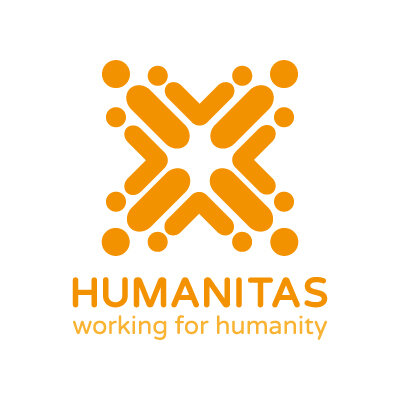Jo's first time visiting a Roma Camp
Written by Joanne Wearne, Fundraiser for Humanitas
Although I had spent months writing applications for funding for Humanitas, I was unprepared for meeting the children behind the stories that I was telling. Children like Angela who had been removed from a Roma camp where she was found abandoned, fending for herself and suffering unimaginable neglect. The very same Angela invited us into her pink, ‘Hello Kitty’ room in one of our ‘Safe Homes’ in Tinca, Romania. A young girl whose future has been completely re-written by the brilliant work that Humanitas does.
My trip to visit the Humanitas projects with two of the founders of the charity – Sarah and Ramiz- and my colleagues Genevieve and Billy is an experience I will find difficult to forget. I left the UK with a fundraisers’ sense of what the charity does - demonstrating impact, budgets and mission statements and returned with an understanding that was based on need, an unwavering respect for the foster carers who welcome children into their homes and the resilience and resourcefulness of the children themselves.
One thing I learned from my trip is that a lot can be packed into a day and that when it comes to Humanitas, time is not for wasting! Our first stop was to the Roma camp in Tinca where Billy (fellow fundraiser) and I were taken by Monica, one of the Social Workers employed by Humanitas, who is responsible for assessing and re-homing the children in our care. It was a warm day so I had flip-flops on – Sarah promptly told me to swop them for trainers and advised that I tie back my hair – encounters with headlice and rubbish were to be a feature of our trip.
The Roma community in Tinca is on the fringe of the town and the edge of civilization. On opening the door to our car, three or four children immediately ran up to us, linking mud stained arms and sticky hands around ours – our self appointed mini tour guides. I don’t speak Romanian but it was clear they were happy to have their day broken up by the presence of three un-suspecting strangers. We were duly marched down a dry, mud track with wild, bony dogs limping past and make shift huts on either side. Homes made from corrugated iron, strips of carpet, polythene, concrete and bricks. Some painted bright colours with double-glazing and wrought iron fences and many with satellite dishes.
The camp was relatively quiet, apart from the buzz of our tour guides, women and young girls sat outside their homes, talking amongst themselves or sitting alone looking out on the day. There were very few men around as many of them (we were told) were at work or begging in Romania, France or Belgium – or getting drunk down the road. Alcoholism is a big problem in the camp and was one of the reasons Angela was removed - her mother had turned to the bottle and away from her daughter.
The warmth of the day intensified the smell, stagnant pools of water/sewage, dog mess, rubbish and unwashed bodies made for a heady cocktail. The children were keen to have their photos taken, striking provocative poses and grabbing phones eager to see how they looked. One young boy in yellow wellington boots was drinking from a bottle hung around his neck with string. The bottle contained grey water with what looked like mud floating on top…..it was unfit for human consumption.
We were told that most of the children have no experience of education, that girls are mostly married and/or pregnant in their teens and there is overt racism and rejection of the Roma all across Romania. A tough existence but one that is steeped in deep rooted pride, a sense of heritage and a reluctance to be part of the status quo – even if the chance were offered. Humanitas have worked in the camp for many years, running contraceptive clinics for young girls and giving them the opportunity to make choices about their lives.
It is a tough environment to work in and one which is largely ignored. It was a real eye opener to see where Angela had been living and then to meet with her in her new home. The two cannot be compared - she now has a childhood and is learning, thriving and experiencing what it feels like to be cared for and loved. Something many of us take for granted.





